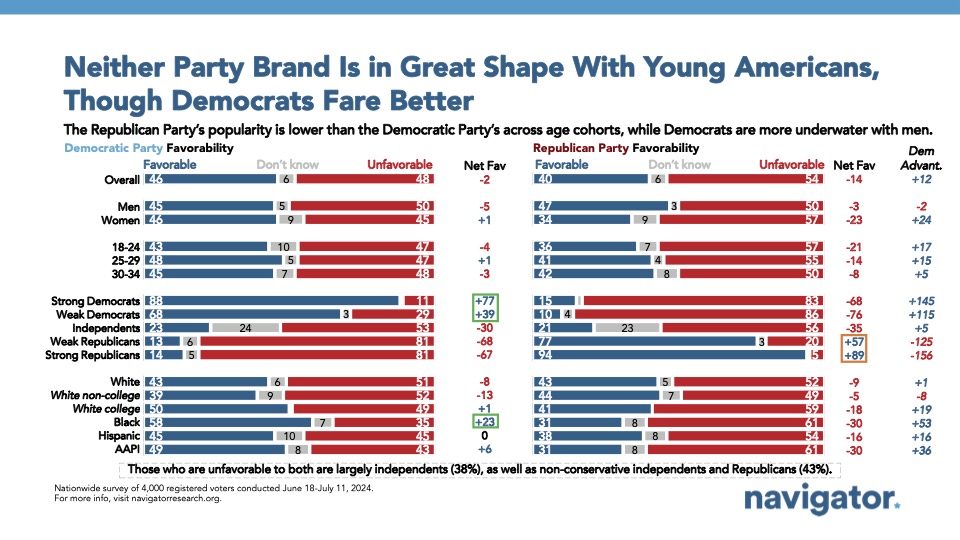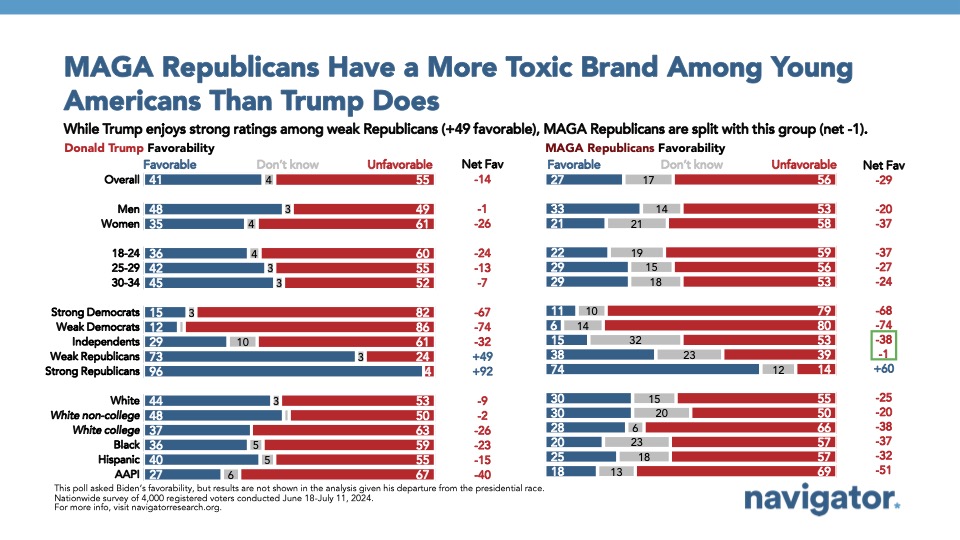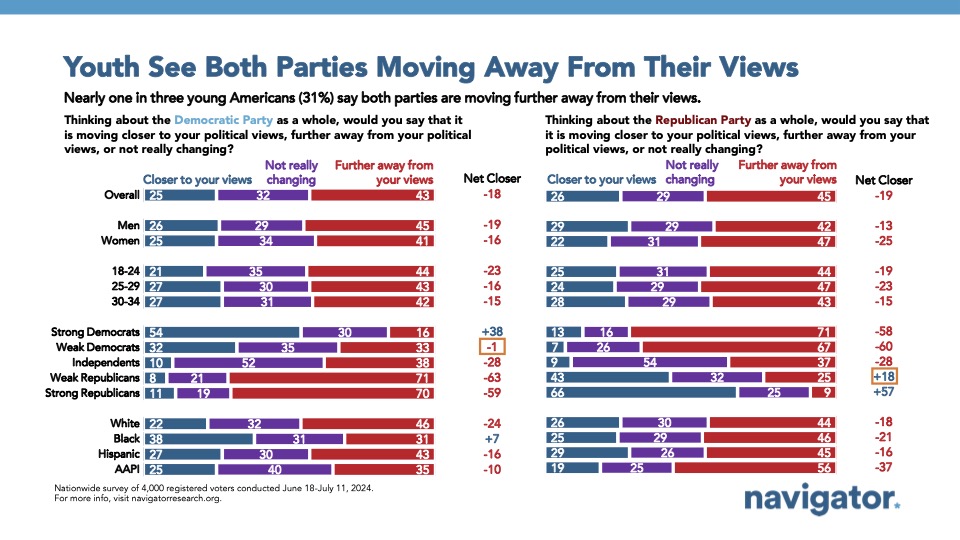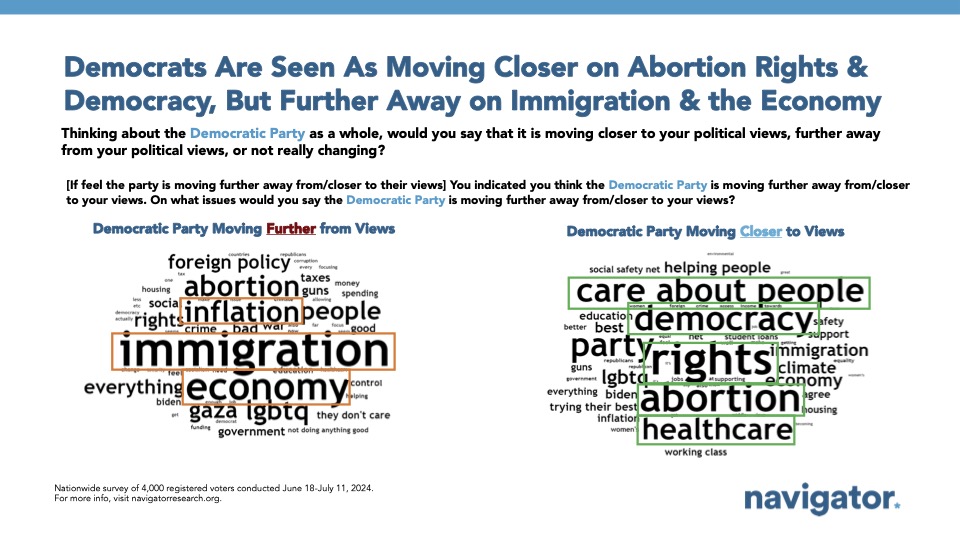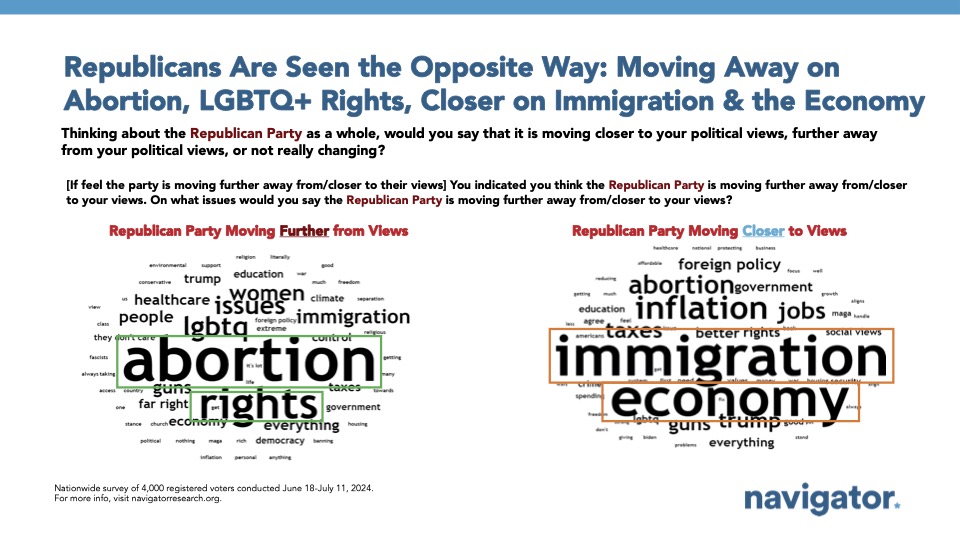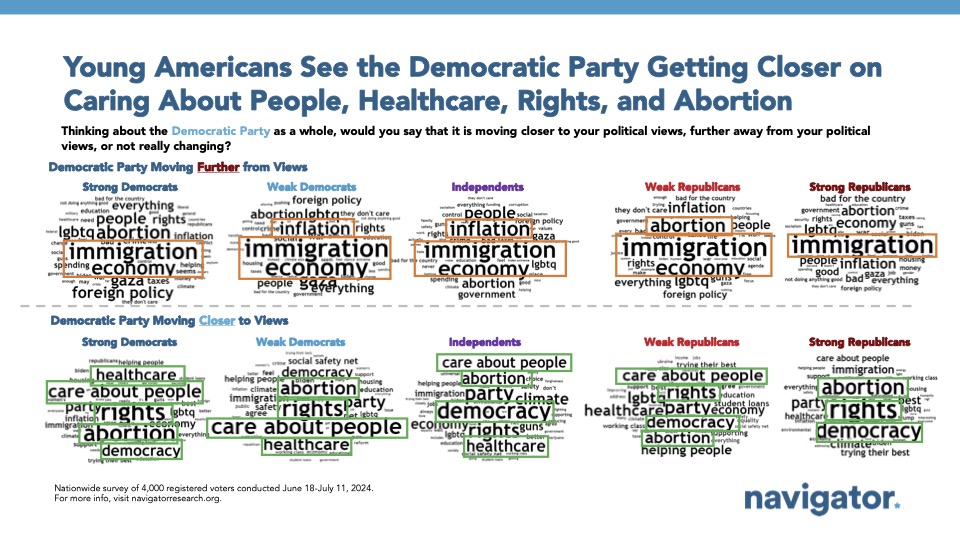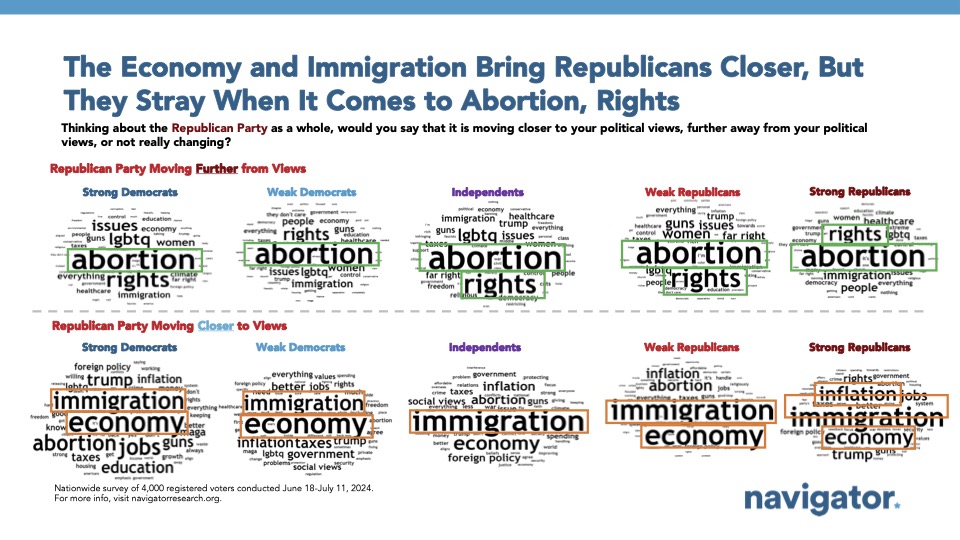Poll: Young Americans on the Political Parties
This Navigator Research report is the second release from a survey conducted among 4,000 Americans under the age of 35 across five different modes to understand where they stand on issues facing the nation today. Today’s release focuses on younger Americans’ perceptions of the political parties, including favorability of the parties and whether they see the parties as aligned with their own views on various issues.
Democrats are seen as more favorable than Republicans by a net 12 points.
While neither party is viewed particularly favorably among younger Americans, Democrats fare better by a net 12 points. Young Americans are split on their favorability of the Democratic Party (net -2; 46 percent favorable – 48 percent unfavorable) while the Republican Party’s favorability among young Americans is underwater by 14 points (40 percent favorable – 54 percent unfavorable). While our last report showed that younger Americans are 11 points more likely to be Democrats (46 percent) than Republicans (35 percent), Republicans fare better than Democrats in ratings of their own party: weak Republicans view their party favorability by a 57-point margin (77 percent favorable – 20 percent unfavorable) and strong Republicans view their party favorably by an 89-point margin (94 percent favorable – 5 percent unfavorable). By comparison, strong Democrats view the Democratic Party favorably by a 77-point margin (88 percent favorable – 11 percent unfavorable) while weak Democrats view their party favorably by a 39-point margin (68 percent favorable – 29 percent unfavorable).
- Younger Black Americans view the Democratic Party favorably by a 23-point margin (58 percent favorable – 35 percent unfavorable), and view Republicans unfavorably by 30 points (31 percent favorable – 61 percent unfavorable).
- MAGA Republicans have a more negative brand among younger Americans (net -29; 27 percent favorable – 56 percent unfavorable) than Donald Trump (net -14; 41 percent favorable – 55 percent unfavorable). Among weak Republicans, Trump is viewed favorably by a 49-point margin (73 percent favorable – 24 percent unfavorable), but are split on their views of MAGA Republicans (net -1; 38 percent favorable – 39 percent unfavorable).
Youth see both parties moving away from their views.
Young Americans believe both parties are moving away from their views, with one in three believing both parties are moving further from their views. By similar margins, young Americans believe both the Democratic Party and the Republican Party are moving further away from their views, with young Americans saying the Democratic Party is moving further from their views by an 18-point margin (25 percent moving closer – 43 percent moving further, with 32 percent saying they’re staying the same) and the Republican Party moving further from their views by 19 points (26 percent moving closer – 45 percent moving further, with 29 percent saying they’re staying the same). 31 percent of young Americans believe both parties are moving further away from their views.
- However, weaker Democrats are split on whether they see the Democratic Party as moving further from their views by a 1-point margin (32 percent moving closer – 33 percent moving further, with 35 percent saying they’re staying the same), while weaker Republicans see the Republican Party as moving closer to their views by an 18-point margin (43 percent moving closer – 25 percent moving further, with 32 percent saying they’re not changing).
- Younger women believe the Republican Party is moving further away from their views by a 25 point margin (22 percent moving closer – 47 percent moving further, with 31 percent saying they’re not changing).
Abortion, immigration, the economy, and caring about people are seen as the issues moving young Americans closer or further from the major parties.
Among Americans who believe the Democratic Party is moving closer to their views, abortion, democracy, and caring about people are seen as the issues driving the shift. Conversely, young Americans who see the Democratic Party as moving further away from their views focus on immigration and the economy. Among young Americans who believe the Republican Party is moving further from their views, abortion emerges overwhelmingly as the driving factor, while immigration and the economy are seen as the driving issues among those who believe the Republican Party is moving closer to their views.
- Among Democrats who believe the Democratic Party is moving closer to their views, rights, abortion, caring about people, and health care are the top reasons. Abortion and rights are the top reasons across partisanship among young Americans for the Republican Party moving further away from their views, while immigration and the economy are the top reasons for the party moving closer to their views.

